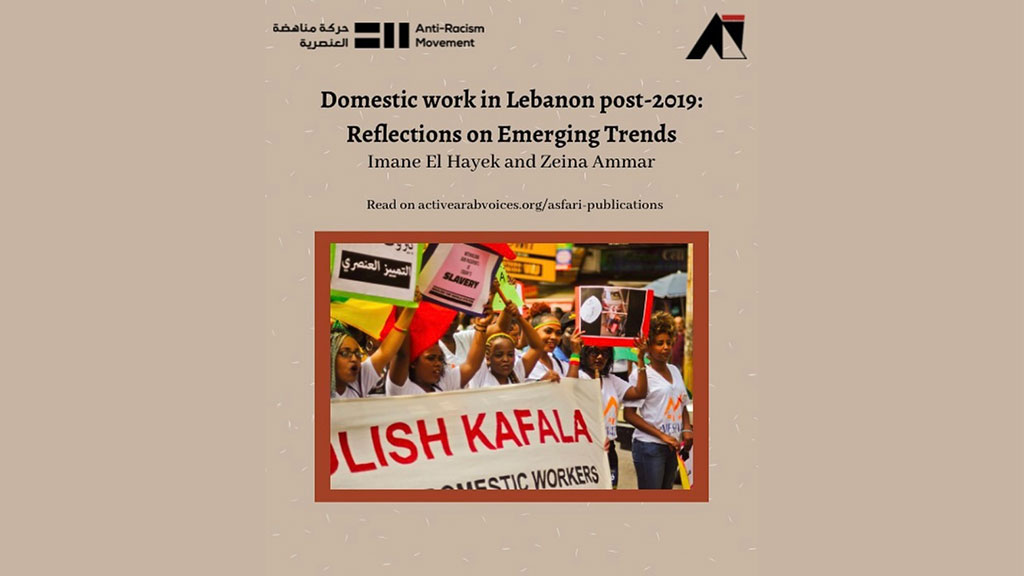Domestic Work in Lebanon Post-2019: Reflections on Emerging Trends
18/02/2022
Migrant workers (MWs) in Lebanon allegedly number 207,696 individuals today, a decrease by almost half from the 400,000 estimates that pre-dated 2019. This sharp decrease is the direct result of a series of intertwined political, financial, and economic crises that culminated into the loss of value of the Lebanese pound (LBP). Lebanon is in a state of flux, and so are all of its markets. The domestic labor market is no exception. How has the domestic labor market changed post-2019 and what future changes can we expect to see in the next few years? This analytical report aims to present the emerging trends in the domestic labor market, at the levels of policy (government), public discourse (government and media), and on the ground (workers, employers, and brokers). At the policy level, the government failed to create an enabling environment for the growth of its productive economy, leading to mass unemployment and a trade deficit which caused the country to hemorrhage US dollars.
Related Posts
Have Any Questions?
To inquire about this statement and the context, email us or fill the form.
Join Our Newsletter
At the Anti-Racism Movement (ARM), we are constantly working on a multitude of different activities and initiatives. Most of our activities are only possible with the help of dedicated and passionate volunteers who work in collaboration with our core team.
The Anti-Racism Movement (ARM) was launched in 2010 as a grassroots collective by young Lebanese feminist activists in collaboration with migrant workers and migrant domestic workers.
Quick Links
Useful Links
This work is licensed under a Creative Commons Attribution 4.0 International License.
Developed by CONCAT
